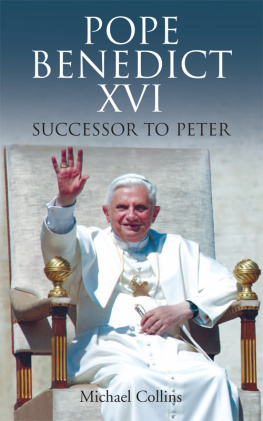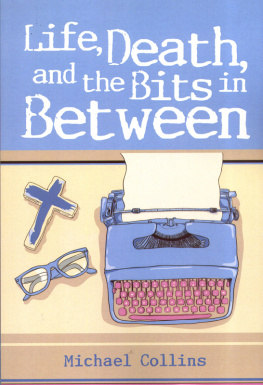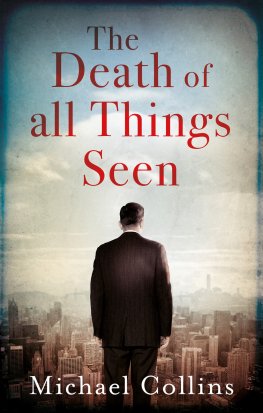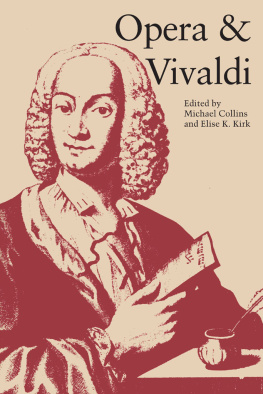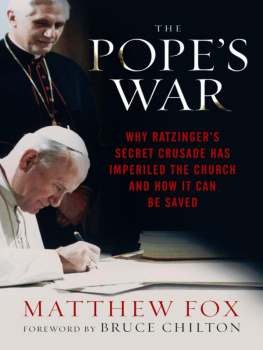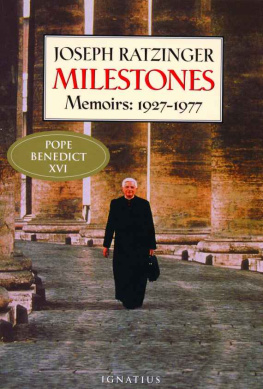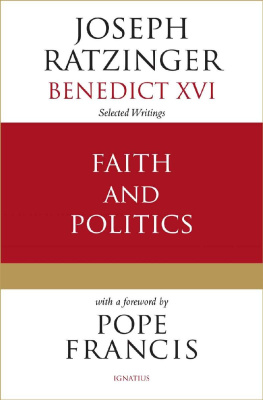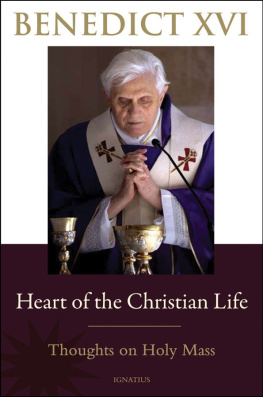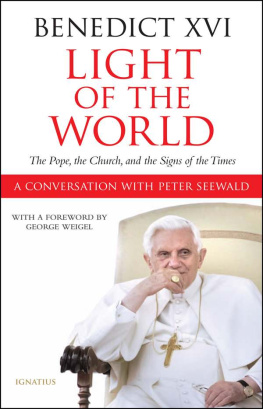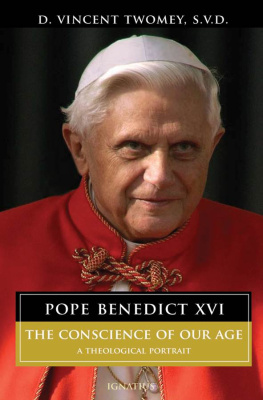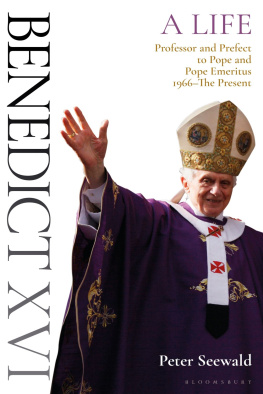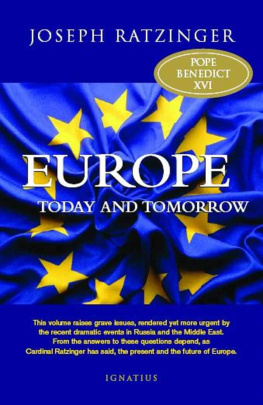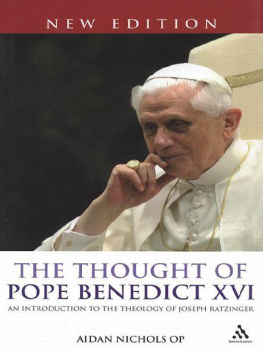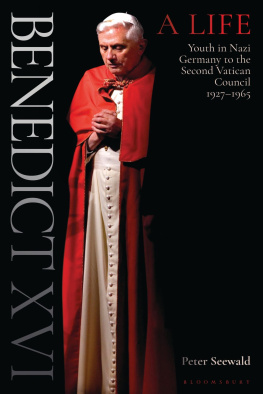As the pontificate of Pope John Paul II drew to a close, Catholics were not alone in wondering who the next Pope might be. The Polish pontiff had made enormous strides in more than a quarter of a century as the Successor of Peter. As he criss-crossed the globe, he had literally put the church on every agenda. But there were critical voices who were worried about the direction in which the church was going. After a highly visible and vocal pontificate, some feared that the papacy was overidentified with Karol Wojtyla. The election of Joseph Ratzinger seemed an antidote. His life had been quite modest by comparison. But there has been huge interest generated in the papacy and it is natural that we wish to know something about this humble worker in the vineyard of the Lord. I am grateful to Sen O Boyle of The Columba Press for the invitation to fill in a gap in our knowledge. Cardinal Joseph Ratzinger wrote extensively and gave wide-ranging interviews. This book has been culled mainly from his writings. He is, to my knowledge, the first professional theologian, as we know the term, to become Pope. Whether one agrees with him or not on many issues, nobody can deny that this is a person of enormous cultural and intellectual talents. I hope that this short book will serve as an introduction to the thought and aims of the new Pope as he begins his challenging pontificate.
My thanks to Kathleen and Gerry Noonan for their help with proof-reading.
CHAPTER ONE
The Early Days
Joseph Ratzinger was born in the small town of Marktl am Inn in southern Germany on 16 April 1927. The little rural town was close to the northern border of Austria. Joseph was the third and last child born to Joseph and Maria. His father was a police officer, although the Ratzingers were of farming stock and traced their ancestors back through several generations in the area.
The infant was baptised on the very day of his birth, which that year fell on Holy Saturday. It was a tradition among the people at that time to have newly born children baptised immediately as the incidence of infant mortality was high. The little boy was taken to the local church where the ceremonies for Holy Saturday had just been celebrated. In those days, the Easter Vigil was carried out on the morning, rather than the evening of Holy Saturday. It was seen as a special blessing in the Ratzinger family that the youngest child had been baptised by the parish priest with newly blessed water.
Any blessings which could be gained were gladly accepted, for those were difficult years. The First World War had ended in a disastrous defeat for the Germans less than a decade earlier, in 1918. A people who had long suffered turmoil and violence were still reeling from the economic straits in which they found themselves after the war.
The Bavarians trace their past with great pride. Among the earliest to settle on their lands were the Celts, who brought a rich folklore and elaborate skill in arts and crafts. In the first century, the Romans occupied the land, offering the people protection and prosperity in exchange for loyalty to Rome. When the Roman Empire collapsed in the West in the late fifth century AD, the area was settled by German tribes who nonetheless managed to forge a harmonious existence with the Roman remnant. In 787, Charlemagne annexed the territories for himself and for three centuries the people were subject to Carolingian rule. By 1180, the Bavarian family dynasty of Wittelsbach took control of the area when Otto VI was nominated Duke of Bavaria by Holy Roman Emperor Frederick I, Barbarossa. During the Reformation, Bavaria remained faithful to the Catholic faith. In 1648, the Treaty of Westphalia reconfirmed the dictum of the Peace of Augsburg, passed in 1555. This set of negotiations had decreed a memorable Latin tag, cuius rego, eius religio, whatever the faith of the ruler was to be the faith of the populace. Bavaria was to be at the crossroads of various warring armies throughout the seventeenth to nineteenth centuries, until it finally united itself with the German Empire in 1871. Participating in the First World War, it suffered the humiliating defeat of the rest of Germany.
When Joseph was just under two years old, the Ratzinger family moved from their comfortable lodgings in Marktl am Inn for Tittmoning, a small town close to the border of Austria. Here his father received a new commission in the town. It was a considerable promotion, and the family found itself living in the police barracks in the main square of the town. The house had formerly belonged to a religious order, and although imposing from the outside, it had a rather austere interior. They settled in quickly.
Joseph was quite close in age to his brother, Georg and his sister Maria. While the children enjoyed the freedom to play in the meadows close to the house, trouble was brewing on the horizon.
Following the end of the First World War, Germany had reluctantly accepted the provisions of the Treaty of Versailles. Subsequent political analysts have seen that the terms of punishment were harsh in the extreme, and indeed unjust to the population. As a result, Germans experienced a Great Depression, marked by economic stagnation, unemployment and monetary inflation. Throughout the 1920s, a young political activist, Adolf Hitler, agitated for action to help Germany emerge from its woes. As part of his plan, Hitler advocated widening the German territories to allow greater lebensraum, or living space, for the native people. Following the Wall Street Crash of 1929, some German entrepreneurs began to look more favourably on Hitlers political activities, convinced that he could provide a cohesive way out of the political crisis.
As a police officer, Josephs father found himself in opposition to the increasingly fanatical brownshirts, or supporters of Hitler. The young children did not understand what was happening at the time, but they realised that it was a period of intense anxiety for their parents. It was a considerable relief to the family when Ratzinger senior received a new post towards the end of 1932. Shortly before Christmas, the Ratzingers said farewell to their neighbours in Tittmoning and set off for the prosperous town of Aschau am Inn at the foot of the Alps. The family could scarcely believe their good luck. The living quarters had been rented from a farmer who had recently built a fine house in the country. There was a large garden and in a nearby meadow, a carp pond. Joseph Ratzinger learned to respect water there, because while playing beside it he almost fell in and drowned.
The accommodation was on the second floor, directly above the station. It was somewhat more rural than Tittmoning, but the family settled in quickly. For Josephs father, the political situation continued to cause concern. Just over a month after their arrival, President Hindenburg transferred power to Adolf Hitler. The Nazi party which he led won a majority in the election. A year later, Hitler became Chancellor. On 27 February 1933, the German parliament building, the Reichstag, was destroyed by fire. The following day, Hitler, on the pretext of preventing a Communist takeover, forced President Hindenburg to sign a decree proclaiming a state of emergency. Less than a month later, with further election victories in favour of the Nazis, Hitler received plenipotentiary powers from the newly-elected parliament.

